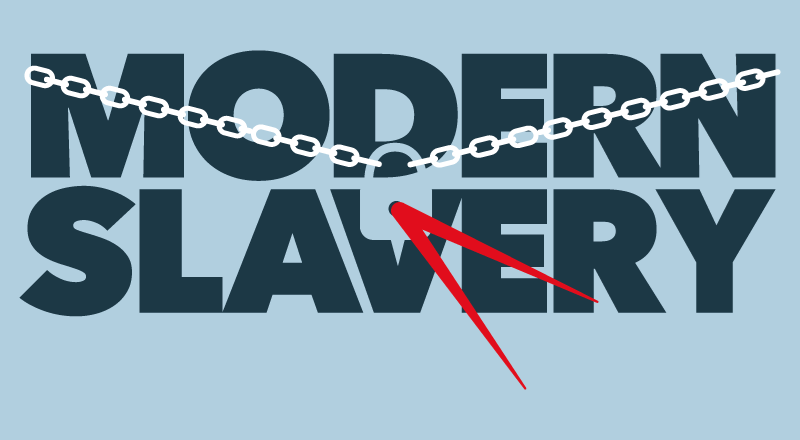Companies House accepted around 12m transactions last year and attracted more than 10bn views to its online register of UK corporate entities. An executive agency of the Department for Business, Energy and Industrial Strategy (BEIS), Companies House processes 95% of incorporations within 24 hours and helps to inform millions of further transactions and business decisions worth up to £3bn per year.
Demand is growing all the time and that trend of people coming to rely upon the register in ever-greater numbers is one reason why reform of Companies House is under way. In addition, there are concerns that among a growing population of companies and other legal entities – now approaching 5m – too many have been set up for the wrong reasons.
So, while the above figures seem to tell the story of a flawless operation, the reality – as BEIS Deputy Director Matthew Ray points out – is somewhat more complex.
“The essential problem,” he says, “is that this deliberately streamlined, straightforward and user-friendly framework, which has made it so easy to set up companies, has unfortunately opened the door to lots of people doing the sorts of business we don’t want to see.”
Tackling misuse
In February, BEIS published a White Paper for Companies House reform, built around a three-point rationale. Point One, Ray explains, is national security. “Through a combination of government intelligence reports and investigations by journalists and others, we know that in the past decade, thousands of UK-registered companies have been misused in major money-laundering scandals. That’s bad for the countries where organised criminals or corrupt officials have transferred stolen money into the West via UK-registered entities. And it’s bad for global stability in general.”
Point Two is fraud. “In this context,” Ray says, “one particularly relevant misuse is so-called ‘phoenixing,’ where a business runs up huge debts that its directors never intend to repay. Instead, they leave the company in an inactive position with Companies House, allow it to be struck off the register, then re-establish it in a new guise – and creditors can’t get to the debt incurred under the original name.”
Companies House also sees regular cases of identity fraud, Ray notes, “where people discover they’re registered as directors or beneficial owners, or even hosting the address of companies they’ve never heard of”.
Point Three, Ray says, has a more positive thrust. “We want to boost enterprise. This all ties into the register’s value as an economic tool. We want it to be more accurate and reliable. And we want to introduce back-office changes that will provide company directors with a better user experience.”
Closing loopholes
The drive to pursue those strands of reform and set up the relevant solutions for long-term success will stem from a broader, overarching process: reframing the role of the Registrar of Companies – a post currently held by Louise Smyth.
“In layperson’s terms,” Ray says, “we’re changing her role from a librarian-like, passive recipient of company information to more of a gatekeeper: a proactive custodian of the quality of data on the register. She will have greater powers to query incoming information, and to pause or reject filings. And Companies House will be better able to share intelligence with the regulated sectors, such as accountancy – plus law enforcement bodies and HMRC.”
Ray notes: “If we picture a landscape of bodies with oversight of economic crime – for example, the National Crime Agency, the Financial Conduct Authority and HMRC – this is an effort to move Companies House from the margins of that landscape and much closer towards the centre.”
Once the package of reform legislation is passed, individuals acting as agents on behalf of companies will have to demonstrate that they are supervised by appropriate UK authorities – such as ICAEW. New privacy arrangements will draw a sharper distinction between data that is safe to display on the public register, and that which is best kept behind the scenes. And loopholes enabling bad-faith users to claim they are dormant, when in fact they are trading, will be closed.
“We can’t stop all the wrongdoing,” Ray says. “But we can ensure that we are providing better information about what’s occurring and put certain limits around it.”
Joint venture
Importantly, Ray is keen to stress that BEIS is carrying out the reforms in partnership with Companies House – a point with which the latter’s Director of Transformation Delivery, John-Mark Frost, wholeheartedly agrees.
“We are absolutely working in collaboration,” he says. “As Companies House, we are the delivery arm. We enable companies to incorporate, file and dissolve. We make the relevant data publicly available and work with partners and stakeholders to share intelligence.
“BEIS, meanwhile, is responsible for the policy that will enable us to carry out our role more effectively and proactively – and to play a larger part in tackling economic crime and building confidence in the UK economy.”
Collaborating with BEIS, Frost notes, has granted Companies House the perspective to fully appreciate the dual challenge at the heart of the reform drive: (i) developing the policy for passage through Parliament and (ii) implementing that policy in practical terms to fulfil its essential aims. “Together,” he says, “we are seeking to craft stronger policies that can have a bigger impact when implemented – achieving the underlying intent and making the UK an even better place to start and grow a business.”
The stakes are high – after all, this is the biggest change programme to surge through Companies House since the role of Registrar of Companies was founded in 1844. But Frost is confident that business leaders and other key stakeholders will value the outcome.
“Through our transformation and the new powers from legislation,” he says, “we will aim to support companies to complete their statutory duties more easily and effectively, while increasing confidence in the quality of the register and doing more to tackle economic crime.”
Recent articles
Company reform and economic crime
The Economic Crime Act 2022 became law in March and part two of the bill is incoming. From risks to required changes, we explore key considerations for accountants on the issue.




